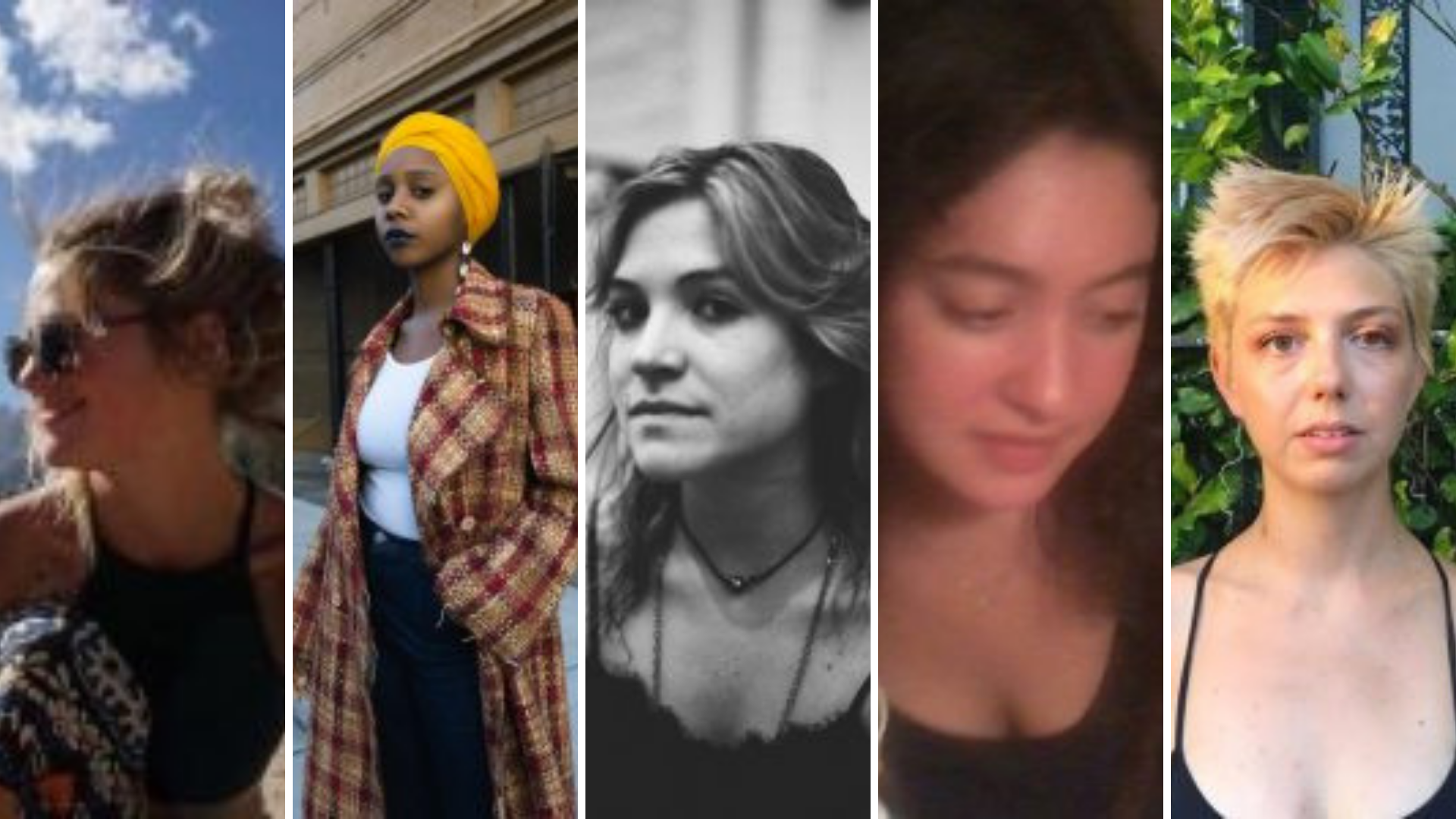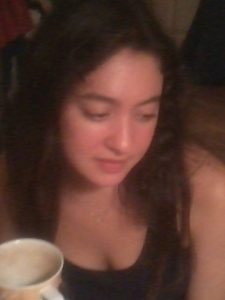This content was originally published with Big Easy Magazine, a publication dedicated to being a progressive voice for New Orleans and a soapbox for residents in every neighborhood. You can find this article and more content all about the Big Easy here.
By: Nolan Storey – Staff Poet / Contributing Writer at Big Easy Magazine.

Five rising female poets. (Photo provided by: Big Easy Magazine)
New Orleans is a city that harbors a great deal of talent. When most people think of New Orleans, they think of the music scene, particularly Jazz groups and Brass bands. While it is true that our great city harbors much musical talent, it is also bursting at the seams with creative talent of all sorts. New Orleans is chaos and order colliding. It is a melting pot of cultures in a way that few other cities are. It stands to reason that out of a city that is poetry, great poetic talent arises. In a field historically, unjustly dominated by men, it is important to shine a light on the talented women who are breaking out onto the poetry scene. What follows is a highlight of five rising women poets in New Orleans: Kellyann Bates, Julia Taylor, Sharita Simms, Molly Kirschner and Camille Goering share their thoughts, works and lives in the profiles below.
All of these poets have been previously featured in Big Easy Magazine’s art section! Each Wednesday we feature a local poet’s work! Be sure to check back on Wednesday’s for new and exciting work from these five, as well as other local talents!

For B.
It hangs by a thread, this inchworm,
finger on a lyre.
You worry about your brain, I worry
the end of the world!
Not for the lightning bugs
free of their fire.
Not for the hermit thrush,
who goes through phases but remains rock solid.
With an inchworm in my hair, how can my head
not be a harp? How can I not be beautiful, musical?
And you, in New Orleans, when you’re out by the bayou,
trees grow down– don’t listen.
Don’t blame it for imitating you,
Molly: I am a collector. I am never seen without my notebook, in which I record the images and overheard conversations I encounter in my day. If you hang out with me, you will frequently be told, “I’m putting that in a poem (or play).” My work reflects my love of nature, the divine, and the absurd; it is equal parts imagery, metaphor, and humor.
Nolan: When did you first start writing poetry and what’s your goal in doing so?
Molly: I wrote my first “poum” when I was seven years old, after the loss of my mom’s dearest friend. I remember it: Angels are spinning around in my heart while I sit here, thinking of you.
It was when I was sixteen years old that I began writing seriously, that is constantly, with a near-compulsive fervor. To say I was a “passionate” teenager is to be awfully euphemistic. I was voted “Most Dramatic.” Filled to the brim with more feeling that my body could hold, I spilled out onto page after page. And some of my classmates really annoyed me. I would write poems especially for them, and make sure that they saw them.
Today, I’d like to think my goal in writing is a little more expansive. I want to attune people to the full range of the human experience, in this time and place, including states of ecstasy, sorrow, outrage, love, meditation, and laughter.
Nolan: What is your connection to New Orleans? What does it mean to you and how does living here affect your poetry?
Molly: We were sitting it my family’s New Jersey home, right after my older brother graduated from college when he informed us he was going to New Orleans to drive a pedicab. My mother was dismayed. “The New Orleans Plan,” he professed, “is a sound plan. It’s the best plan.” And he went through with it. Of course, I never imagined I would end up here. I’ve always been extremely close with my mother and couldn’t fathom being so far away. I’d always envisioned myself in New York City. But I was living in New York, and really struggling to find a place for myself in the economy. Mom had warned me that the city wasn’t hospitable to artists the way it had been when she was young. It was just too expensive now.
Then, my boyfriend was accepted into a Ph.D. program at Tulane University. He was moving down there too! It was as if fate were personally escorting me down south. I took the risk. I’d never lived so far from home and I knew not what awaited me here. It was the best life decision I ever made. Now I have the kind of meaningful job I’ve always dreamed of, working with children, and a beautiful apartment on Magazine St. And my writing career has flourished: I’ve written a wealth of new poems, and even had the opportunity to be a featured reader at the Maple Leaf Bar. If you read my poetry, especially my second collection, Notes For Further Research, you will see that it is replete with poems about the magic of New Orleans.
Nolan: What unique challenges or circumstances have you faced being a woman in a field that has been historically (unjustly) dominated by men? How have you overcome these hurdles and how does this come through in your work?
Molly: Certainly as a female playwright, it is much harder to have one’s work produced. According to American Theatre, only 30% of all plays produced in the country this year were written women. I was able to overcome this through my connection with the progressive Horse Trade Theater Group in New York, which allowed me to use their space to produce one of my plays for the first time. As a poet, I’m sure I will come up against similar challenges. I will continue not only to write under a female pen name, but to embrace the female perspective in my work, which is, in itself, underappreciated.
Nolan: What are your goals with both your poetry and your life overall moving forward?
Molly: I hope to write and publish many more books as I age and my perspective deepens. I’d also like to publish with a more well-known press, so that more readers have access to my poetry. Teaching, I feel, is also a part of my path, whether I teach young children or college-level poetry students. Ultimately, I want to make my mark as a poet and playwright whose work invites audiences into a sense of wonder, and encourages them to become collectors.
You can find Molly’s works available for purchase on both Amazon and at Barnes and Noble!
 NOLAbeings
Multimedia artist Claire Bangser created NOLAbeings as a portrait-based story project that marries...
NOLAbeings
Multimedia artist Claire Bangser created NOLAbeings as a portrait-based story project that marries...
 Data corner: Adobe Suite (create a PDF, social media graphic, presentation, edit a photo and video
Data corner is where you go to work with analytics and top tech skills. It takes on everything from PERL and SQL to Canva and Sprout Social.
Data corner: Adobe Suite (create a PDF, social media graphic, presentation, edit a photo and video
Data corner is where you go to work with analytics and top tech skills. It takes on everything from PERL and SQL to Canva and Sprout Social.
